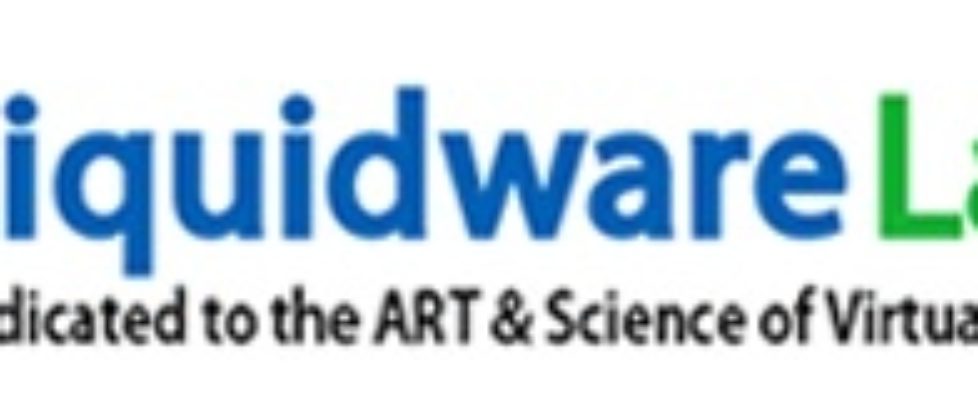Liquidware Labs Unveils Ground-Breaking “On-Demand” Department Installed Applications

Liquidware Labs, the leader in desktop transformation solutions, has announced they will demo ProfileUnity FlexApp Department Installed Applications (DIA) at VMworld 2012.
This cutting-edge solution allows administrators to deploy user and corporate department applications to users, groups, departments, or the entire enterprise, without affecting the underlying base image of virtual machines. ProfileUnity FlexApp will go far beyond other user virtualization solutions, providing virtualized software distribution (VSD) in addition to user persona and data management. With ProfileUnity FlexApp, desktop administrators can utilize gold master images with the fewest number of installed applications delivered in the base OS. All other applications can be snapped in on demand at login without reboots, extensive performance penalties or application incompatibilities. Department Installed Apps will be introduced in ProfileUnity 5.5 and will be generally available by the end of the year. Currently, this solution supports non-persistent virtual desktops but is being tested on physical desktops which are to be supported by Q1 2013. ProfileUnity FlexApp DIA addresses the most challenging aspect of desktop administration – application management.
“Administrators have long wanted a way to ‘install once; deliver many’ applications in order to cut down on the time needed to configure, deploy and maintain all the versions of their organization’s software,” said Jason Mattox, CTO of Liquidware Labs. “None of the competing solutions available today are as elegant, simple and affordable as ProfileUnity FlexApp. Admins can easily decouple users and applications from the OS and deliver them on demand, across platforms, to any device.”
ProfileUnity FlexApp User Installed Applications (UIA), introduced earlier in 2012, laid the groundwork for a ground-breaking roadmap of virtualized software distribution solutions from Liquidware Labs. ProfileUnity FlexApp UIA currently supports more than 600 unique tested applications. A major enhancement in the upcoming (September 2012) 5.2 release is secure privilege rights, which provides users with restricted and specific rights to install applications without the need to make them an administrator of the desktop environment. This feature is a requirement for highly secure environments, such as government, health care or financial institutions. Building upon UIA, the DIA feature relies on a new method originated by Liquidware Labs to virtualize only the location where the application binaries are stored. FlexApp leverages flexible VHD or VMware Persistent Disk Technology to store the needed files for each application. ProfileUnity then inserts one-to-one corresponding links into the OS within seconds at login to restore assigned applications for each user. Applications look native to the OS, enabling compatibility of thousands of more apps than traditional application virtualization. Complex applications that require file system drivers and an intimate relationship with the OS or other applications install flawlessly. The result is streamlined management of virtual and physical PCs, with much fewer desktop images to manage while enabling more workers to be compatible with virtual desktops. Another major advantage to this approach is that VHD read/write IOPS activity can be granularly distributed across storage tier types, to achieve maximum density, performance and TCO/ROI. Administrators can then leverage ProfileUnity’s powerful context-aware filter technology to assign applications to a selected user, group, or to all users. Granular rules can be applied to grant access to a specific setting. Dozens of criteria can be used, including Microsoft Active Directory Computer Name, User Name, or Organization Unit (OU).
Unlike competing products, ProfileUnity FlexApp does not rely on proprietary layering techniques that require persistent desktops and dedicated storage. The solution is tailored to work with non-persistent desktops and provides these key advantages:
- Manage and deliver user profiles, data and applications with only one affordable solution that runs as a virtual appliance.
- Drastically reduce the number master desktop images; migrate more user types to virtual desktops
- Centrally administer and maintain applications. Clear out unneeded or obsolete applications.
- Deliver applications to individual users or entire departments based on Microsoft® Active Directory groups.
- Separately patch and manage OS from the applications.
- Reduce software licensing costs by delivering applications only to users who need them.
- Reduce storage costs significantly by leveraging non-persistent desktops.
- Utilize thin application approaches for only the most problematic, process-intensive applications, thus conserving both cost and time.
- Provide comprehensive desktop disaster recovery with no extra cost or effort by automatically leveraging existing domain controller replication features as well as data center backup processes and tools.
According to Chris Wolf, analyst for Gartner Inc. “IT can utilize application layering technology to deploy single, shared desktop images for all common applications, then use departmental and user layers to manage applications across departments. Its technology that Gartner considers very important for supporting virtual desktop deployments at large scales, as well as for cutting down the Opex costs associated with smaller-scale deployments.”
More information about ProfileUnity FlexApp and all of Liquidware Labs Desktop Transformation suite of solutions can be found at www.liquidwarelabs.com.

